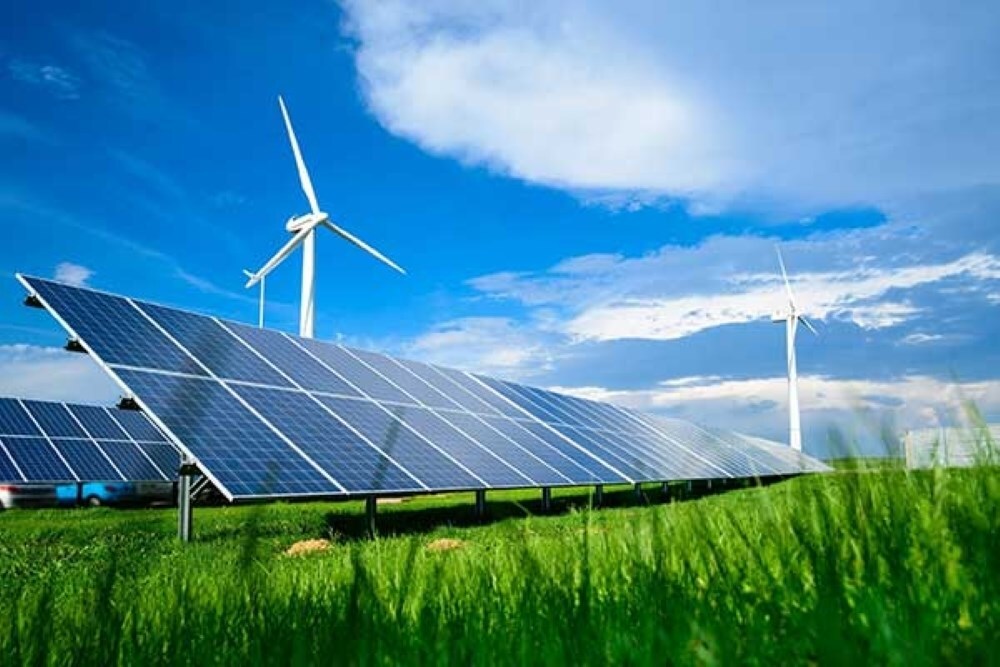

According to the world's energy watchdog, renewable energies are on the road to becoming the fastest growing energy source than any other source in the upcoming decades. This shall make the transition from fossil fuels to clean energy sources "inevitable" irrespective of the green backlash occurring in parts of Europe and the US.

As per the flagship annual report shared by the International Energy Agency (IEA), within the next five years, it is expected that the world will emerge into projects that will build more renewable energy, which has been in place for the last 40 years.
The report further highlights that the rapid inclusion of renewable energy will benefit in meeting the global growing demand for electricity. Moreover, it is estimated in the report that the electricity demand will rise by 40 per cent in the coming decade, mainly due to the rise in electric cars, cooling, heating and powering the AI datacentres.
Demand driven by major technology-based companies, it is safe to say the "renaissance" for nuclear power is also emerging, seeking a steady low-carbon electricity supply for powering the datacentres. It is predicted by IEA that a total investment of USD 580 billion in 2025 in datacentres will surpass the global spending of USD 540 billion in oil supply.
With the rise in growing demand for low-carbon electricity, the transition from the fossil fuel era is deemed to be sealed, irrespective of the call by the Trump administration for retreating from green investments, favouring the drilling of gas and oil.
Also read: CEEW: India’s solar waste could power $444M circular economy by 2047
In the report by IEA, David Tong, a campaigner at Oil Change International, stated, "No single country can stop the energy transition." He further called on all the world leaders who were gathered for the UN's COP30 climate talks, held at Belém in Brazil, in favour of a "fast, fair and funded fossil fuel phase-out", pleading to reject "Donald Trump's dystopian future."
The IEA's findings are deemed to provide the leaders with courage, especially for those who are on the road to make use of the COP30 talks to push further the progress to reach the global target. This target is said to triple the renewable energy for 2030, with a major focus on transitioning away from fossil fuels, as agreed on the COP28 held in Dubai.
Moreover, IEA came under pressure from the US Republicans for utilising its flagship report to present a positive future concerning the fossil fuel industry, in relation to the previous forecasts. In this, IEA provided their response about reintroducing a particular scenario as presented from the earlier reports, which had offered "a cautious perspective" regarding speeding up the energy transition.
The chief analyst of Ember, Dave Jones, commented on the above-presented scenario's assumptions, which have underestimated the fan-out of the EVs, leading to the oil consumption forecasts as per the IEA's central scenario. He further added that the transition for expanding renewables is "inevitable."
He added, "Renewables and electrification will dominate the future and all fossil-importing nations will gain the most by embracing them."
With reference to all the IEA's findings, it has reported that irrespective of any scenarios, it has modelled that renewables have the potential to have a faster growth rate than any other major energy source. The surge will lead to an increase in demand for cheap solar power, particularly in regions which have abundant sunshine, like the Middle East and Asia.
Explore- Most accurate data to drive business decisions with 50+ reports across the value chain
Within the US renewable energy sector, Trump decided to pull the support, which, if loosely translated by IKEA's central scenario, the US will fall behind by 30 per cent in solar power by 2035 in relation to the forecast drafted in last year's report. Nonetheless, at the global level, renewables will see a "rapid expansion."
Dave Jones added, "There's a revolution happening right now and it's in renewables and electrification. The evidence on the ground is overwhelming, EV sales are taking off in many emerging countries and solar is permeating even through the Middle East. Fossil fuel-importing countries are still reeling from the energy crisis and are trying to reduce their reliance on expensive and insecure fossil fuels urgently. The faster [transition] pathways offer a cheaper, more efficient and more secure energy system. In comparison, the slower pathways raise global temperatures and bloat energy demand with inefficient burning of fossil fuels."
Mariana Paoli, the head of advocacy for Christian Aid, urged that every wealthy nation should make use of COP30 to commit towards eliminating investments in fossil fuels and further boost climate finance.
In relation to this, Paoli stated, "The IEA's report confirms what many climate-vulnerable communities have known for years: the fossil fuel era is ending, but governments are still dragging their feet when it comes to building the clean energy systems that need to replace it. Oil and coal are peaking, renewables are surging, yet public money continues to flow into new fossil fuel projects that the IEA itself says we don't need."
Note: To feature your brand and share insights, contribute an article or interview in our forthcoming e-magazine "Women in ALuminium: Real Stories. Real Shifts."
Responses








